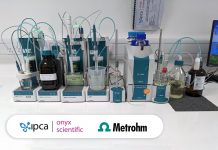The imbalance in the age groups of UK chemicals sector employees and a shortage of essential skills is set to become more challenging unless companies start investing now in new talent and skills.
Figures* compiled by Cogent Skills from the national Labour Force Survey in the past 12 months have revealed how more mature workers in the chemicals sector outnumber newer entrants and show the extent of today’s challenge to fill job roles with appropriately skilled people.
Across the industrial sciences sector – including chemicals, petroleum, polymers and paints – there are over 30,000 more employees (18%-plus) aged 40-64 than those in the 16-40 age group (170,314 vs 139,954). New or recent school leavers and graduates account for only 8.5% of the sector’s total workforce. In terms of finding the right people, nearly all companies in the industrial science sector (97.5%) have vacancies that are difficult to fill because of skills shortages**. Nearly 70% (68.24%) are receiving a “low number of applicants with the required skills”.
Through the Science Industry Partnership (SIP), facilitated by Cogent Skills, employers across the science industry sectors are encouraging their peers to embrace the available support and match-funding to address the long-term skills challenges in the UK. And that includes attracting younger people into the chemicals industry through apprenticeship schemes devised by employers in the sector, for the sector.
Craig Hargreaves, Senior Trainer Maintenance Services at chemicals manufacturer SABIC UK Petrochemicals and Chair of the Life Science and Industrial Science Trailblazer Group, said: “It is a fact that the sector find it difficult to attract and retain younger people. There are a number of factors for this, including competition from other companies in the process industries’ supply chain, such as the offshore oil and gas sector which has drawn on the limited talent pool.”
Consequently, SABIC on Teesside is now investing in the Trailblazer Apprenticeship scheme, designed to tailor apprentice training to chemical companies’ specific needs and to help fill the skills gap.
Mr Hargreaves adds: “The Trailblazer scheme is enabling SABIC on Teesside to assess what skills and training we now need as an industry to maintain competitive advantage in the global market.”
Mark Botting, Chair of the SIP Futures Group, SIP Board member and EME Laboratory Business Director at Synergy Health, said: “The age gap across the science sector is a clear signal that science sector companies need to have succession planning along with skills and talent development on their agenda now. Skills shortages ultimately affect an organization’s ability to compete in an increasingly global market.
“The figures we have collated suggest that a greater proportion of people currently working across industrial and life sciences will be leaving the workforce in the next 25 years than those remaining behind. In fact, those aged 55-64 in industrial sciences who are likely to retire in the next 10 years outnumber 16-24 year olds in the current workforce by nearly 21,000 (20,654). In life sciences, it’s more than 17,000 (17,347). The sector needs to do something now to address the brain drain.”
The SIP, since its inception in April 2014, has introduced more than 370 apprentices into science sector businesses, which can obtain funding via the SIP. Indeed the SIP’s most ambitious strand is Apprenticeships, with a target of 1,360 starts. The SIP is making it easy for companies to get Apprenticeships that meet their direct needs and is complementing the graduate intake traditionally used to fill science-based roles; for many science employers, the apprentice experience is a new – and successful – recruitment method.
In addition, the new Laboratory Scientist Degree Apprenticeship standard – the first at degree level – has now been approved and will be available from September this year. Developed with employers, the apprenticeship will help new entrants become effective at an early stage in their employment.
“It is a fact that the sector find it difficult to attract and retain younger people. There are a number of factors for this, including competition from other companies in the process industries’ supply chain, such as the offshore oil and gas sector which has drawn on the limited talent pool.” – Craig Hargreaves, Senior Trainer Maintenance Services at SABIC UK Petrochemicals
Other skills and talent development initiatives facilitated and funded by the SIP include traineeships, industry degree schemes, workforce development and the Modular Masters programme to improve skills in formulation science.
For more information visit
www.scienceindustrypartnership.com
By John Holton
Strategy and Operations Director – Cogent Skills












